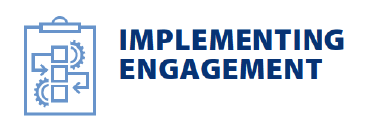 When making decisions as a group (e.g., collaborate), the way in which decisions are made can have a large impact on participants.
When making decisions as a group (e.g., collaborate), the way in which decisions are made can have a large impact on participants.
Adopt a decision-making model based on the premise that all engaged participants’ voices are worth hearing and all concerns come from a place of integrity.
Consider
- Have you built in space in your approach/agenda to hear from all engaged participants?
- How will you capture the full range of thoughts and opinions?
- Making high stakes and/or complex decisions is a resource intensive process. Have you allocated sufficient time?
- Do you need additional resources such as a skilled neutral facilitator?
Formalizing decisions:
- Will decisions come to a vote?
- Who is entitled to vote?
- Who can call a vote?
- When can a vote be called?
- Will a simple majority lead the vote (i.e., greater than 50%)?
- Will decisions be made on a consensus basis?
- How is consensus defined?
- How will consensus be achieved?
- What if consensus cannot be reached
Quick Tip
Consider whether you want to explicitly identify how and when decisions will be made in a Terms of Reference document to help establish common understanding across all stakeholder groups.
Resources
The Kootenay Boundary Division of Family Practice has created a useful document outline their consensus protocol.
Short guide with an overview of consensus decision making tools.

